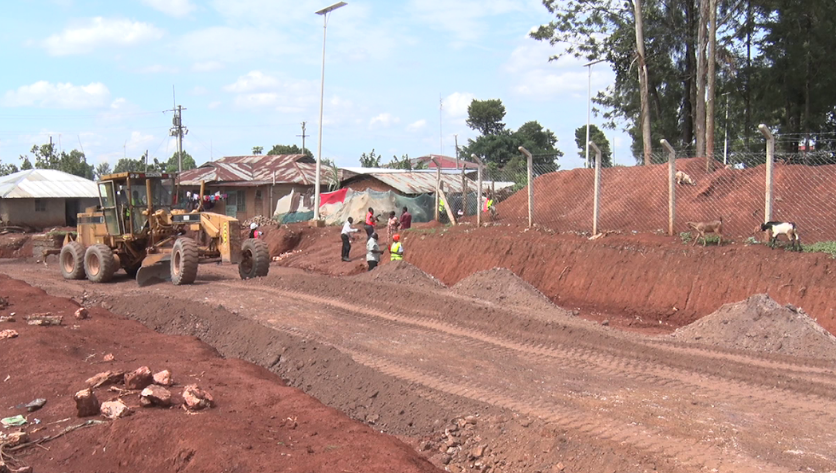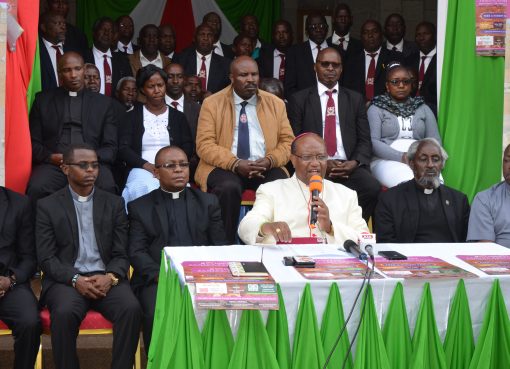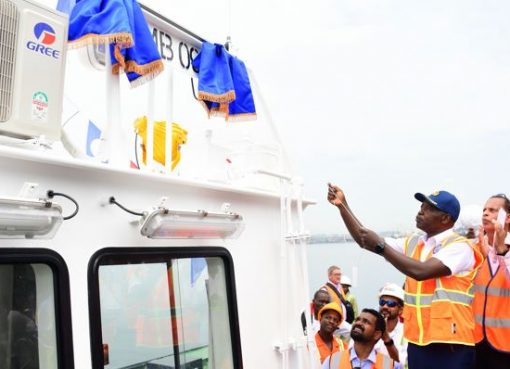Five informal settlements in Kakamega are currently undergoing infrastructure upgrades through the Second Kenya Informal Settlements Improvement Project (KISIP 2) at a total cost of Sh268 million.
The project is being implemented by the Government of Kenya and the County Government of Kakamega through funding from the World Bank, the French Development Agency (AFD), and a grant from the European Union (EU).
The facelift is benefiting Amalemba and Kambi Somali informal settlements in Kakamega Municipality under Lot 2 of the contract and Mjini, Lukoye, and Shibale Informal Settlements in Mumias Municipality in Lot 1 of the contract.
The upgrade of Amalemba and Kambi Somali informal settlements in Kakamega Municipality has been allocated Sh116 million.
Amalemba Informal Settlement will benefit from the upgrading to bitumen standard of 0.848 kilometres of Amina Salim Street and Abdi Mwewa Street main link road, construction of 1.696 kilometres of drainage, construction of 0.992 kilometres of sewer line, and installation of one high mast flood light and 25 street lights.
Kambi Somali Informal settlement construction works include upgrading to a bitumen standard of 0.19 km Kambi Somali road1/road 2, construction of 0.38 km drainage, and construction of a 0.756 km sewer line.
For Mjini, Lukoye, and Shibale Informal Settlements, the partners in the KISIP 2 Project have prioritised spending Sh152 million in the upgrade of infrastructure.
Mjini Informal Settlement will benefit from upgrading to a bitumen standard of 0.944 km Masanga road and Masanga link road, construction of 0.944 km drainage, installation of 26 street lights, and piped water connection to 100 households.
Shibale Informal Settlement will benefit from upgrading to bitumen standards of 0.523 km Shibale Primary School and St. Joseph High School roads, construction of 2.092 km drainage, installation of one high mast floodlight, and construction of five water kiosks.
For Lukoye Informal Settlement, the KISIP project works include upgrading to a bitumen standard of 0.88 km Lukoye loop road and construction of 1.76 km drainage.
Additionally, Amalemba, Mjini, and Lukoye will benefit from the installation of 47 solar street lights, while Kambi Somali, Mjini, and Lukoye will have a total of three floodlights, one per settlement.
The project works are ongoing in all the informal settlements, with the contractors expected to complete the construction works for the Mumias informal settlement by January 24, 2025, and by May 2025 for the ones within the Kakamega Municipality.
“The contractor is way above 50 per cent; we appreciate the challenges that have delayed project implementation, majorly the high rainfall we are experiencing currently, but we are pushing the contractor to cover as much as possible the time lost due to delays caused by the climatic conditions. We are planning to utilise the dry months of December and January to facilitate the contractor’s work for long hours. So we expect to complete these contracts within the stipulated time,” noted KISIP Kakamega County Coordinator Kelvin Marangu.
The Chairman of the Amalemba Settlement Executive Committee (SEC), Ramadhan Sakali, said the Amalemba informal settlement has a population of 3000 people in 110 households who are going to benefit from the KISIP project.
He said that currently, only 2 per cent of the households are connected to the sewer line, noting that they are expecting all the households to be connected to the sewer to improve sanitation once the project phase comes to an end.
With the improved infrastructure, Sakali said they will construct a market in the scheme that would boost business activities and lead to increased income amongst the residents.
The County Coordinator of KISIP, Kelvin Marangu, said that they have already installed 17 solar-powered street lights at the Mjini, Lukoye, and Shibale Informal settlements, which are functioning perfectly.
“This is a settlement, we would say, that has benefitted a lot from capital gains or appreciation of property. Since we did the survey and planning for this settlement, as you can see, there is an influx of investors from what used to be a madhouse-filled estate; today we have several high-rise investments within the settlement,” he noted.
Marangu noted that about 50 000 people are going to benefit from the KISIP project in Kakamega County directly as employees in the ongoing works and indirectly through the upgraded infrastructure.
“There is direct economic impact to the community with the employees in the construction works, enhanced business development, increased working hours due to security enhancement, and also connectivity to other market areas, which will be enhanced by the roadworks,” he added.
He also said that the KISIP project works directly with communities in the project sites through their representatives in the Settlement Executive Committee (SEC) and the Grievance Redress Committee (GREC).
The Settlement Executive Committee (SEC) represents the community and safeguards the project, while the Grievance Redress Committee (GRC) resolves conflicts/grievances in the community regarding the project.
“We have continued to engage these communities through the two committees that they have established. The chairman of the committee is usually on the ground on a daily basis to monitor and ensure that the exercise or the ongoing works benefit the settlement members and ensure that members of the community are given priority when it comes to employment,” he added.
The Kakamega County Chief Officer in Charge of Urban Development and Housing, Shakir Adan, said the project will uplift the lives of people living in the informal settlements and also improve access to social amenities, enabling the county to achieve Sustainable Development Goals (SDGs).
“This project is clearly a roadmap towards achieving the Sustainable Development Goals, as well as part of the policy and the key discussions that are currently taking place at the World Urban Forum in Egypt, and will clearly lead us towards improving the lives of the people and also uplifting the urban areas in Kakamega. This is a well-planned project and is a great intervention towards the future that we all wish to have,” he added.
By Moses Wekesa





